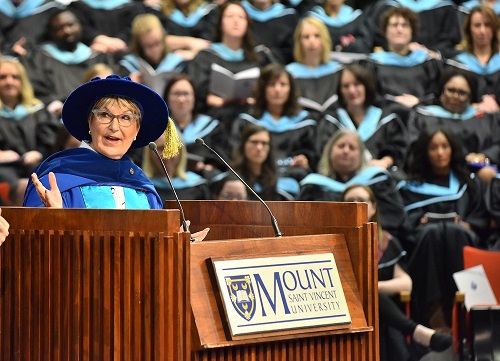Prevention, innovation, and collaboration

Subscribe to Catalyst
Subscribe to get our magazine delivered right to your inbox
Related Articles
Subscribe to Catalyst
Subscribe to get our magazine delivered right to your inbox
Related Articles
MHCC president and CEO anticipates greater impact and collaboration in the year ahead
We’re only a week into 2020, but I’m pleased to share that it’s shaping up to be an exciting year for the Mental Health Commission of Canada (MHCC) and our many partners across the sector.
This will be the year we build on the enormous success of the world’s first workplace psychological health and safety standard by launching its natural followup: the post-secondary student standard.
Together with Bell Canada, the Rossy Family Foundation, RBC and, of course, the guidance and expertise of CSA Group — Canada’s trusted standards organization — we’ll be giving every post-secondary campus across the country a baseline for measuring progress and a framework for building improved mental health services for students. I truly believe this building-block approach to promotion and prevention is the best way to integrate psychological wellness into Canadian society.
Just as this work by organizations is extremely important, so too is fostering the expertise in our communities with training like Mental Health First Aid (MHFA).
Earlier this year, when I was asked, “Why should people take such training?” it struck me that, until the answer becomes as obvious as it is with physical first aid training, we’ve still got important work to do on raising awareness.
In response, I offered this: “If someone was choking in a restaurant, would you want to know how to help? Well, what if someone was having a panic attack in a stuck elevator or a stalled subway? Would you want to know how to support them until a professional arrived?”
Of course, the answer was a resounding “yes.” And I’m not surprised it was, given this year’s huge MHFA milestone: that half a million people in Canada will have taken the training, something we plan to celebrate with a very special Canadian icon who offered to be number 500,000. Stay tuned!
Given that the MHCC has also deepened its relationships across the provinces and territories in 2019 — with projects like Roots of Hope and our successful e-mental health demonstration project in Newfoundland and Labrador — we are now considering how best to build on these partnerships.
In fact, this renewed focus on collaboration has inspired us to embark on strategic planning to better identify our place among Canada’s many important champions of mental health.
We believe that, by listening to our stakeholders and staff, evaluating our successes, and understanding where we may have fallen short, we can recalibrate as an organization to give our work the greatest impact and ensure we continue to support those who might otherwise be overlooked.
Finally, as we strive to lead by example, I am extremely proud — and humbled — to say that, after nearly five years of working with Indigenous partners, and with the guidance and advice of generous Indigenous mentors — 2020 will be the year the MHCC formalizes a declaration of reconciliation. More than words, the declaration will shape our efforts to work supportively with Indigenous organizations seeking our partnership.
Given the extent of these many priorities, it is expected that certain parts of our work will have reached their natural conclusion. For example, we will be transitioning the stewardship of our HEADSTRONG youth anti-stigma summits to the Canadian Mental Health Association (CMHA), whose 300 offices and 5,000 staff members will continue supporting its growth at the grassroots level.
As I said at the CMHA Mental Health for All Conference in September, it’s high time the mental health sector came together in a spirit of collaboration. After all, “who does what” matters a lot less than “what gets done.”
Let 2020 be the year we move from patchwork to quilt — blanketing this great country with improved access to services, increased suicide prevention efforts, more training and resources, and a greater sense of cultural humility.
Happy New Year!
Louise Bradley
Louise Bradley




